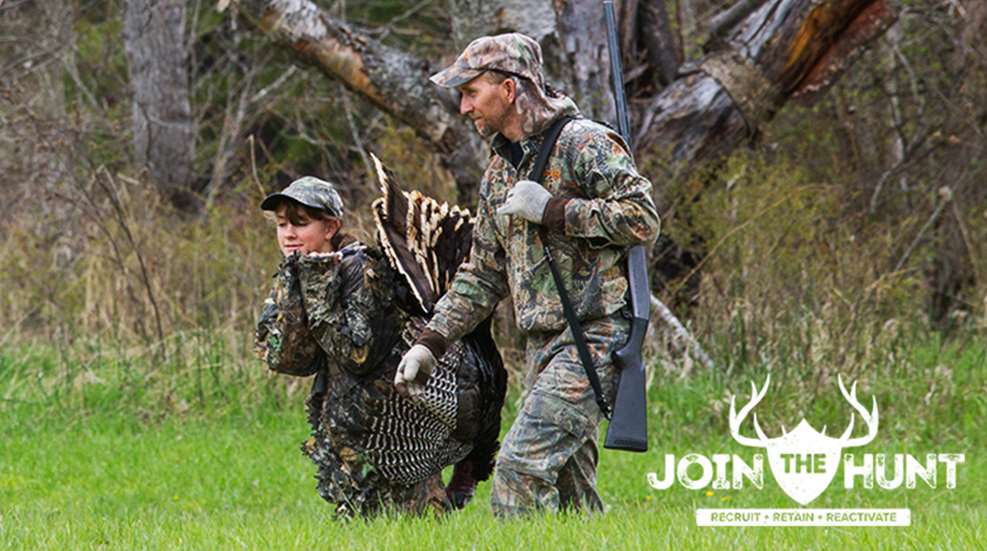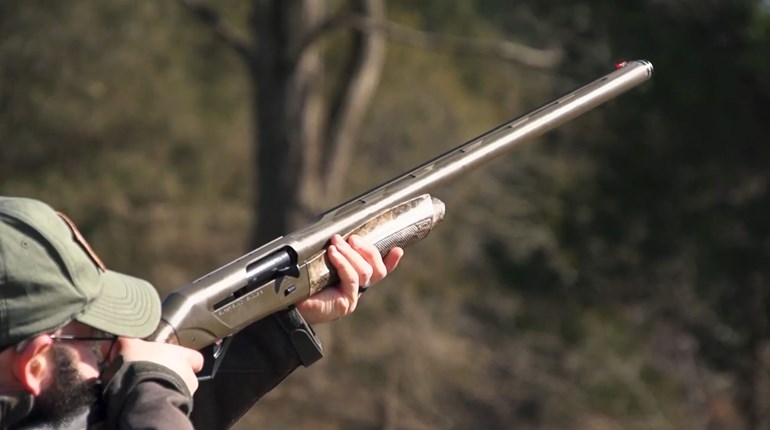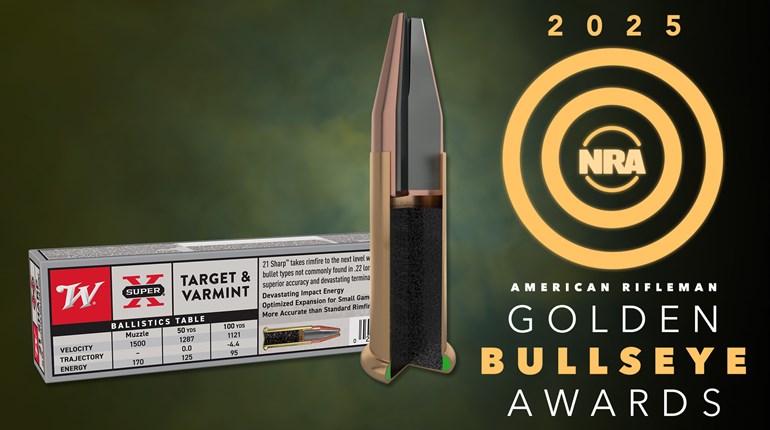
Prospective hunters don’t suffer from a lack of interest in our pastime. Quite the contrary: Many individuals want to give it a go; they understand the benefits of a life outdoors. What these people lack is someone who can take them hunting—they need someone, anyone, to take a chance on them. They know they need a mentor. The problem is finding one.
That’s my experience. Growing up in Colorado, most friends of mine already hunted; that’s one reason we all became friends. But since moving to Virginia, I’ve met many young people who would like to become hunters, but none of them know a hunter or how to find one. In my social circles, I am able to step into the role of mentor. But what about every prospective hunter who never encounters someone like me?
I made some phone calls and searched online to try to find a path for new hunters, and I was surprised how much information exists to help recruits. States and private organizations and even many apps provide some of the best options for new hunters to learn the ropes.
Essentially every state has a mentor hunting initiative. Programs span a variety of ages. Some are helpful to prospective hunters through “try before you buy” programs with discounted license fees. Others offer mentor courses that conclude with a hunt for the newbie. Some states partner with non-governmental organizations to provide mentor programs including classroom sessions and field experience. Phone your state game-and-fish agency or search its website to learn what’s available near you.
Many states focus on recruiting youth. Virginia, New Jersey and New Hampshire offer apprentice licenses. Texas links new hunters with mentors through hunting workshops, for $25, which conclude with hunts in state parks and wildlife management areas.
Adults can tap into mentor programs geared toward them, too (“Hunter Recruitment Efforts Shift to Adults,” “First Light,” June 2018). Alabama is a prime example. Chuck Sykes, director of Alabama’s wildlife and freshwater fisheries division, explained that while recruiting kids is key to maintaining hunting numbers, adults have a higher recruitment value—they are, after all, capable of hunting by themselves with their own transportation. Also, after an adult becomes a veteran hunter, he or she is better suited to recruit others. Nearly a third of states in America have some form of adult mentoring program.
Non-governmental organizations are another avenue.
The NRA Youth Hunter Education Challenge, though primarily a competition-style event designed to build existing hunting skill-sets, also serves in some states as a mentor program for youth. Those who participate in the program build their rifle, bow and muzzleloader shooting abilities, as well as other skills, such as wildlife identification. More than 1.2 million youth have participated in NRA YHEC since it began.
Other private conservation organizations (the National Shooting Sports Foundation, Quality Deer Management Association, National Wild Turkey Federation, Ducks Unlimited, Delta Waterfowl, Pheasants Forever and the Rocky Mountain Elk Foundation) have mentor programs of some sort hosted alone or in concert with a state’s hunting governing body. The National Shooting Sports Foundation’s +One Movement simply asks that we each take a non-shooter to the range and introduce that person to firearms to build a solid foundation to fortify our pro-gun ranks. This principle can then be taken a step further by turning that individual into not only a range buddy, but also a hunting companion.
Other NGO programs try to recruit specific groups of people. Camp Compass connects urban middle- and high-school students to outdoor activities, including shooting and hunting (“A Hunting Program that Saves Kids’ Lives,” “First Light,” May 2013). The NRA-backed organization was founded in 1994, and works to recruit kids who have no firearm or hunting experience. Camp Compass Founder John Annoni says the program spends roughly 6,700 hours (nearly 280 days) a year mentoring enrollees.
Women also can tap into a wide array of mentor programs. This is important because women are the fastest-growing segment of the hunting market; female hunters as a group grew 57 percent between 2015-18, according to a survey conducted by Shoot Like a Girl (SG). SLG began in 2008 and focused mostly on archery. Five years later, the organization incorporated firearm use in the program, and as of July 2018 boasted 18,000 women graduates.
“Of those women, 32 percent of them said they don’t hunt, but they want to,” explained slg president Karen Butler. Butler employs one of those women, and will be taking her on her first-ever turkey hunt this spring.
Another option for women is Becoming an Outdoors Woman (BOW), available in 38 states. No experience is required, and women of all ages are encouraged to participate. Typical “workshops” span three days and offer more than 20 classes for women ranging from archery to rifle and shotgun shooting. “bow Destinations” are special excursions for women desiring hunting opportunities they may not otherwise experience.
Fathers in the Field helps young boys who need positive role models. The organization teams with local churches to pair outdoorsmen with fatherless boys. The mentor then imparts his skills and interests in the outdoors to the boy. The “Mentor Father” and “Field Buddy” meet four times a month, and a right-of-passage activity, called a “Journey Celebration Event,” is planned for the Field Buddy at the end of the year to celebrate his accomplishments.
Military veterans can find mentors through programs sponsored by Freedom Hunters, Wounded Warriors in Action Foundation and Honored American Veterans Afield. Freedom Hunters has taken more than 8,000 veterans afield. The organization arranges several hunts a year: Some include a veteran’s dream hunt; others include hunts or retreats for military families while their veteran is deployed. The organization also sponsors hunts as a form of rehabilitation for wounded service members.
Electronic and digital mentoring services should not be overlooked. They are likely some of the most efficient and easiest methods to use.
NRA Hunter Education Online offers free, high-quality hunter education from the comfort of one’s own home. The comprehensive online course provides several useful tools and how-to components to help new hunters gain a solid foundation of knowledge before they head to the field. The program is customized for every state in which it’s implemented (currently seven), so it’s more detailed than an average course that meets the bare minimum hunter-certification requirements. This in turn helps build confidence in new hunters, as they’re more prepared to go afield with the extra knowledge they’ve acquired.
There’s even an app for that. Powderhook connects new or prospective hunters to a nationwide community. In some ways it can act as an electronic mentor itself. Users can attend local “camps” to learn about various outdoor topics. Another valuable feature of Powderhook is the company’s nationwide map to help hunters find public hunting land, outfitters and various events for new hunters.
“The problem is it sucks to be new in the outdoors,” explained Eric Dinger, Powderhook CEO. “It’s hard to know where to go. It’s hard to know what to do. It’s hard to know how to do it. God forbid you have some success: Then what do you do? So we started Powderhook to basically build a community and tools for those new people.”
Another online community, Sisterhood of the Outdoors (SOTO), works with companies like SLG and uses social-media platforms as the basis for coordinating hunts; SOTO creates a closed Facebook group for each hunt it puts together, which allows women attending those hunts to ask questions and bond before arriving in camp.
These programs and apps serve as more than mere recruiting tools for newbies. They can retain and reactivate hunters, too. A veteran hunter thinking about quitting the field, for example, may find the fountain of youth by volunteering to become a Father in the Field, or he may just find new hunting buddies. And, of course, prospective mentors—all of us—can use them to point people in the right direction.
*American Hunter has compiled an exhaustive list of programs nationwide to help prospective hunters find mentors. Visit americanhunter.org/guidetomentorprograms to learn more.




































